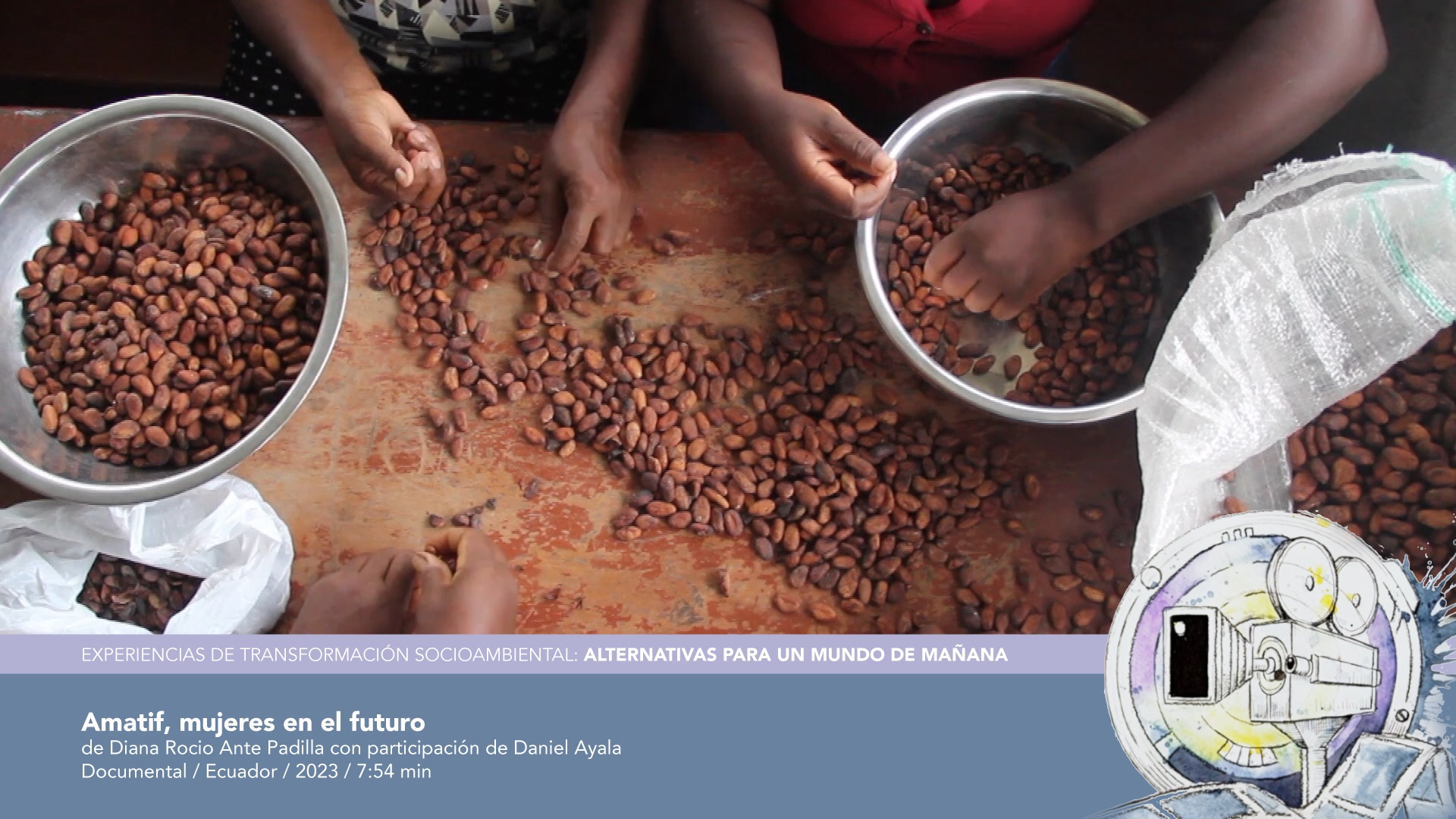DOCUMENTARY/ ECUADOR / 2023 / 7:54 MIN
DIRECTION: Diana Rocio Ante Padilla with participation from Daniel Ayala
The Afro-descendant communities in the north of Esmeraldas province are continually experiencing serious conflicts of racism, displacement of indigenous peoples, violence and natural resource extraction, which is causing the loss of biodiversity and the impoverishment of the communities. So far, 60% of the forest has been cut down and mining activities are advancing, contaminating the water of the rivers and estuaries with heavy metals. The rivers contain high levels of mercury, arsenic, aluminum, copper, zinc, cadmium and lead. The river contamination in northern Esmeraldas seriously affects the communities that live along these river banks. For them, the rivers are places for recreation, transportation, communication, bathing, as well as a source of food. Extractivist activities in the territory violate access to health, human rights and healthy food and threaten the ancestral worldview. The Afro-descendant peoples who settled in Esmeraldas are known because they fought for their freedom through resistance, which contributed to preserve their territory, natural resources and culture.For this short film project, we visited the parish of Timbiré. A warm land, with welcoming people and an exuberant landscape, whose main attraction is the Santiago River. It is estimated that about 2,000 people live there, the vast majority of whom are Afro-descendants, who are mainly engaged in agriculture. Coffee, cacao and bananas are among the most important products. Despite environmental problems, lack of employment, and the loss of traditional customs. In the Timbiré parish, there is an Association of Afro-Ecuadorian Women of Timbiré in the Future (AMATIF), which promotes culture, ancestral traditions, and healthy eating through the production of 100% natural fine aroma chocolate. They also have a medicinal and edible plant garden.
How does the project contribute to more supportive, socially and ecologically just ways of life and economies?
Today it is a fundamental right of all peoples, nations and states to control their food and food systems. These cases show strategies on how to decide on policies that ensure, to each one, quality, adequate, nutritious and culturally appropriate food.




